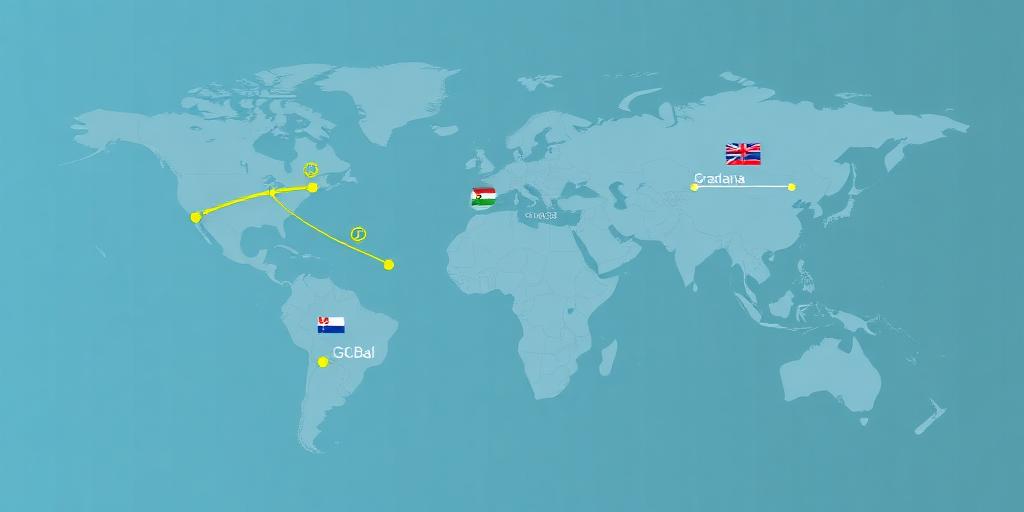Understanding Geopolitical Strategies of Major Powers
In today's interconnected world, the actions of major powers reverberate across the globe, shaping international relations, trade, and security. Geopolitics, the study of how geography and economics influence politics and the relations among nations, provides a framework for understanding these complex interactions. This article aims to provide an informative overview of the geopolitical strategies employed by major powers, exploring their key objectives, tools, and areas of focus.
Defining Major Powers
Before diving into specific strategies, it's crucial to define what constitutes a 'major power.' Generally, these are nations with significant economic, military, and political influence on the international stage. Examples include the United States, China, Russia, the European Union (as a collective), and, to varying degrees, India, Japan, and the United Kingdom.
Key Objectives of Geopolitical Strategies
Major powers pursue a range of objectives through their geopolitical strategies. These can be broadly categorized as follows:
- Security: Protecting national borders, citizens, and interests from external threats.
- Economic Prosperity: Ensuring access to resources, markets, and trade routes to foster economic growth.
- Influence and Prestige: Projecting power and shaping the international order to align with their values and interests.
- Ideological Promotion: Promoting a particular political or economic system as a model for other nations.
Tools of Geopolitical Strategy
To achieve their objectives, major powers employ a variety of tools:
- Diplomacy: Engaging in negotiations, forming alliances, and participating in international organizations to advance their interests.
- Economic Leverage: Using trade agreements, investment, and financial aid to influence other countries' policies.
- Military Power: Maintaining a strong military to deter potential adversaries and project power abroad.
- Soft Power: Exercising influence through cultural exports, education, and promotion of values.
- Information Warfare: Utilizing propaganda, disinformation, and cyberattacks to shape public opinion and undermine rivals.
Examples of Geopolitical Strategies
- United States: The U.S. strategy focuses on maintaining its global leadership role through alliances like NATO, promoting democracy and free markets, and ensuring access to vital resources and trade routes. It also involves containing potential rivals and countering terrorism.
- China: China's strategy emphasizes economic growth and expanding its influence through initiatives like the Belt and Road Initiative (BRI), a massive infrastructure development project aimed at connecting Asia, Africa, and Europe. China also seeks to modernize its military and assert its territorial claims in the South China Sea.
- Russia: Russia aims to restore its status as a major power by exerting influence over its neighbors, particularly in the former Soviet Union. Its strategy involves using energy resources as leverage, modernizing its military, and challenging the U.S.-led international order.
- European Union: The EU's strategy focuses on promoting peace, stability, and prosperity within Europe and its neighborhood. It emphasizes diplomacy, trade, and development assistance, and seeks to play a leading role in addressing global challenges like climate change.
Factors Influencing Geopolitical Strategies
Several factors influence the geopolitical strategies of major powers:
- Geography: A nation's location, access to resources, and climate shape its strategic priorities.
- History: Past experiences and historical relationships influence a nation's worldview and its approach to international relations.
- Economic System: A nation's economic structure and its reliance on trade and investment affect its foreign policy.
- Political System: A nation's political ideology and its decision-making processes shape its geopolitical goals and tactics.
- Technological Advancements: New technologies, such as artificial intelligence and cyber warfare capabilities, are transforming the geopolitical landscape.
Conclusion
Understanding the geopolitical strategies of major powers is essential for navigating the complexities of the modern world. By examining their objectives, tools, and areas of focus, we can gain insights into the forces shaping international relations and anticipate future challenges and opportunities. As the global landscape continues to evolve, it is crucial to stay informed and critically analyze the actions of major powers to promote peace, stability, and prosperity for all.









